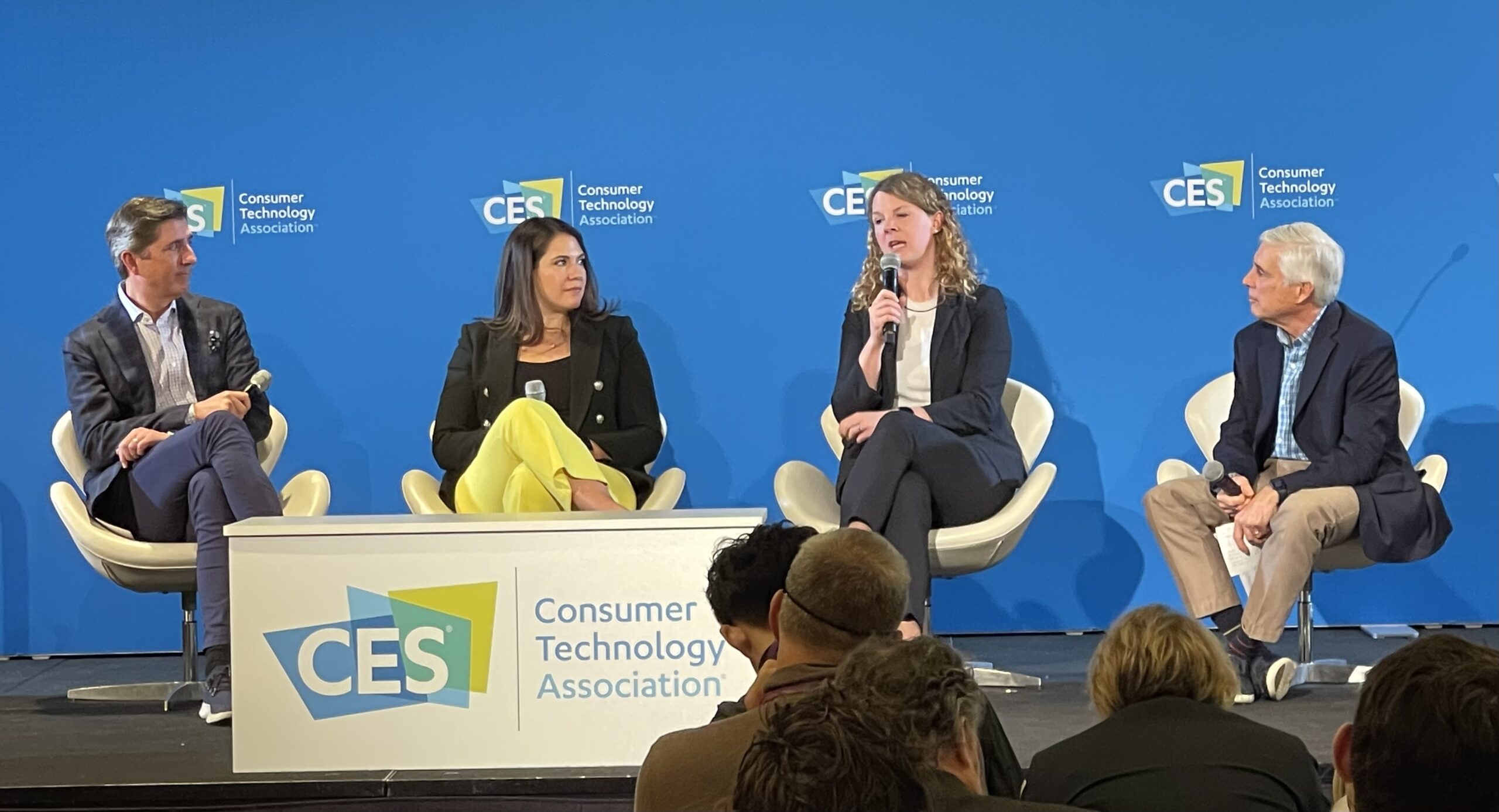
CES 2023 has invaded Las Vegas, with thousands of exhibitors and patrons spread out across the city as it celebrates its 25th year in Sin City and the sports industry is always a topic of discussion among the 200 conference sessions.
The session “From the Couch to the Field: The Immersive Future of Sports Media” brought together a panel to focus on how to engage fans and encourage them to interact with technology and the sports they love.
The group, moderated by David Cole, senior vice president of business development for Sports Innovation Lab, discussed how fans are consuming both content and advertising, and how new platforms are transforming how fans interact and companies drive revenue by monetizing those fans.
Sponsored Content
The Panelists
Lynette Kaylor, FuboTV: Kaylor is senior vice president, advertising sales of FuboTV, the sports-first live TV streaming platform. With over 15 years of sales and business development experience, Kaylor leads FuboTV’s North American sales strategy and ad operations as well as manages the company’s growing sales team.
Jim Norton, Flowcode: Norton is chief revenue officer at Flowcode, an offline-to-online engagement platform. He is responsible for building and managing relationships with partners across the industry who are looking to enhance their omnichannel and direct to consumer strategies.
Alex Willis, Premier League: Willis is a marketing, digital media and communications specialist at the Premier League and formerly at the All England Club, home of Wimbledon. A former sports journalist, her role is to help sporting organizations appeal to the next generation of sports fans and eventgoers.
What They Said
Kaylor: “We just heard that Google is going to have the Sunday Ticket and Amazon has Thursday Night Football, and there’s a league pass for NBA and MLB. You have to have a million different apps just to watch your teams and that’s frustrating. So from our perspective, we would like to aggregate as much as possible and put everything all in one place where you pretty much just have to turn on your app anywhere to access our 55,000 live events each year. We are taking in billions of data points every day on what you’re watching, so when you turn on your TV you can pick sports or whatever is in front of you that you might be interested in. We want to be the one-stop shop for sports fans where we can. We try to use the data points to customize an experience for each user who has a profile, even within families on one account. My husband will log in and see the latest on the PGA channel and my son will log in and see the newest Disney carton that’s coming up. We’re also now producing sports content on our platform. We have seven podcasts that we do with former athletes, including Gilbert Arenas and Terrell Owens. From there, we really want to be the voice of the athlete and humanize these players.”
Norton: “The number one thing we hear about is fan experience and how that can be enhanced. Not just in the arena or stadium, but the viewing experience and the offseason experience. One of the things we work with the teams on a lot is how do we help the team better understand who the fan is and then how can they monetize that fan. Part of the in-arena experience would be food and beverage and how to get it delivered to their seat via a QR code. Merchandise sales is another big one and we have a partnership with Fanatics. At the end of the day, we’re trying to provide a friction free, seamless experience for the fan to connect directly with the brand. For all professional leagues it’s become a 52-week-per-year initiative and it’s key to try to keep fan engagement year-round. Everybody is interested in that first-party data and knowing who the fan is. Teams have done a good job in aggregating a fan database, but there’s a lot of room for improvement. If somebody buys a set of four tickets, you might know the person who bought them, but not the other three people in the seats. It’s about figuring out how to engage those other three fans during the game to capture that data to sell tickets or merchandise to that fan, who you previously may not have known.”
Willis: “Rights holders and event owners — people who have a product that sits in the sports industry — have been going through a transition just as consumers have. You’re used to just being an event deliverer or competition organizer and all of a sudden you need to be those things, but you also need to be a production company, a ticket sales operation and a retailer. You also need to be a fan experience expert and have infrastructure people. You have to try to make the right choices at the right times to keep up with fans’ expectations and it’s really challenging. One of the things we used to talk about a lot at Wimbledon is, ‘Oh, we’ll just improve on what people had last year.’ And the reality was that people weren’t judging us on what they had last year, because they didn’t even remember what they had last year. They were judging us on their most recent experience, which may have been on Amazon or going into a supermarket or Legoland. The key for any sports property is to create a program of innovation and change, whilst not losing your core. What I’m really fascinated by is these technologies that come along and enable us to do a better job of helping people fall in love with a product and with a sport — not just because of the ball, field, pitch and court, but because of all the elements that come around it.”












 Copyright © 2025 by Northstar Travel Media LLC. All Rights Reserved. 301 Route 17 N, Suite 1150, Rutherford, NJ 07070 USA | Telephone: (201) 902-2000
Copyright © 2025 by Northstar Travel Media LLC. All Rights Reserved. 301 Route 17 N, Suite 1150, Rutherford, NJ 07070 USA | Telephone: (201) 902-2000